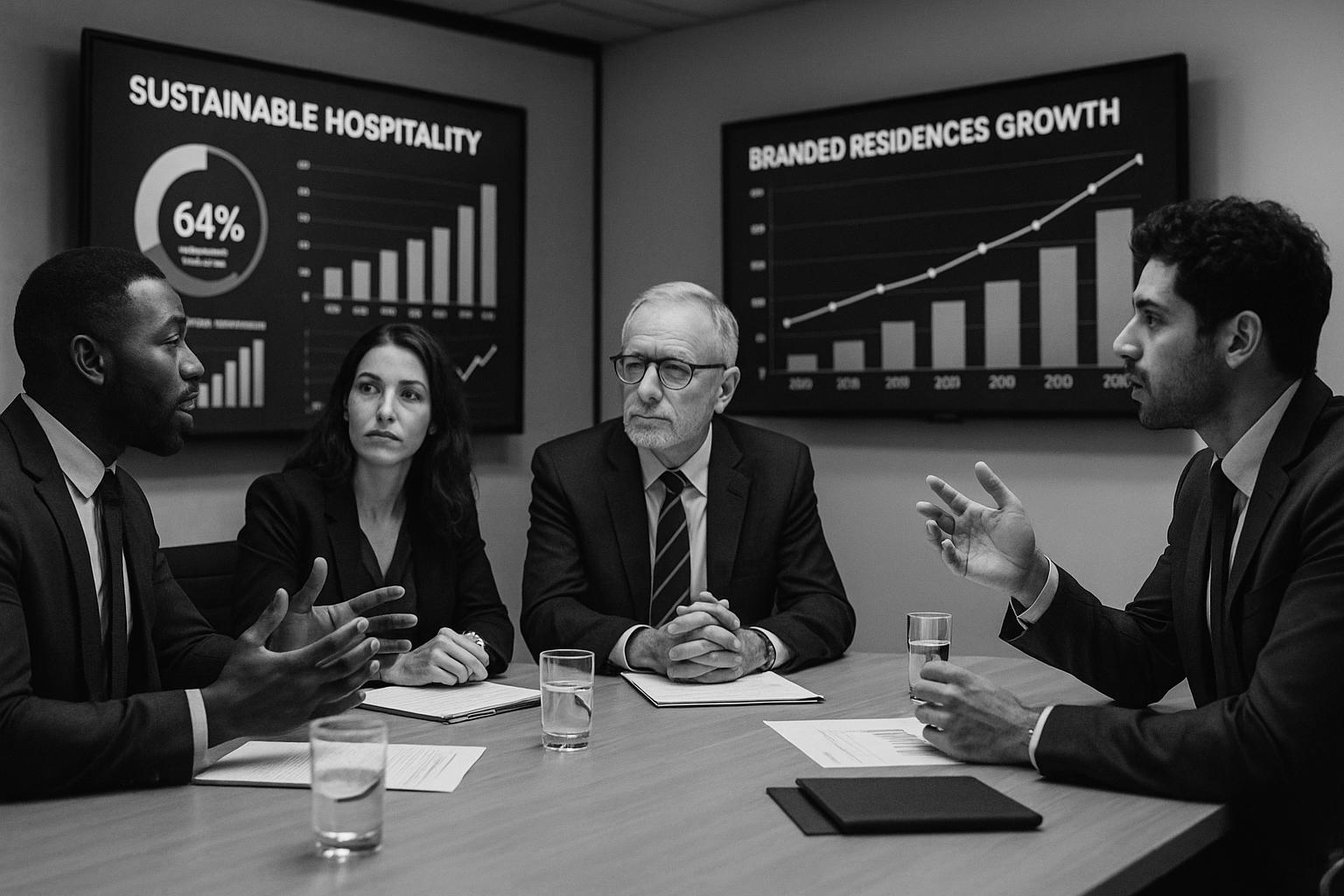The Future Hospitality Summit 2025 has emerged as a pivotal platform for industry leaders to address the dynamic evolution of the hospitality sector, especially in the context of branded residences. This year's summit, attended by key figures and innovators, explores breakthrough trends encompassing not only branded residences but also sustainable development, digital transformation, and resilient destination planning.
Key discussions revolved around how hospitality stakeholders are actively utilising technological advancements to enhance guest experiences and streamline operations. Panels focused on data-driven insights, the integration of property technology (proptech), and the pioneering use of artificial intelligence to deliver unparalleled personalised service. Such innovations are crucial as the hospitality industry seeks to evolve alongside shifting consumer demands, ensuring that the guest experience is both satisfying and forward-thinking.
Sustainability emerged as a significant focal point of the discussions. Experts shared actionable strategies aimed at reducing carbon footprints and fostering community engagement, thereby solidifying a commitment to eco-friendly practices within the hospitality sector. The integration of circular operations, such as sustainable building design and the promotion of local partnerships, underscores a broader shift towards responsible tourism.
Branded residences have taken centre stage, particularly in regions such as Saudi Arabia, where demand has surged. As highlighted by Daniel von Barloewen, Senior Vice President at Accor One Living, the growth trajectory for branded residences in this region reflects a combination of local consumer appetite and an expanding investment landscape in real estate. Notably, over 70% of Accor's luxury developments in Saudi Arabia now feature a residential component, which responds to an increasing desire for integrated living and the allure of hotel-like amenities.
Saudi Arabia has positioned itself as one of the top four global markets for branded residences, a fact that speaks to its burgeoning economy and the alignment with Vision 2030. The initiative seeks to modernise the nation’s hospitality experiences and diversify its economy away from oil dependence. Recent Accor projects, such as the Rua Al Madinah development and a new luxury community in Riyadh, illustrate this ambitious expansion strategy. By 2027, Accor aims to double its presence in the Kingdom, signalling robust confidence in the region's potential.
The appeal of branded residences is broadening, catering not just to ultra-luxury segments but also penetrating the premium and midscale markets. According to data from recent studies, the global branded residences sector has seen a staggering 160% increase over the past decade, with significant activity in the Middle East, particularly Saudi Arabia and Dubai. Demand is driven by buyers seeking not just a second home but a lifestyle choice that embodies brand loyalty and offers the same services associated with high-end hotels.
Barloewen also noted that buyers are increasingly gravitating towards properties that promise hassle-free ownership, steering clear of maintenance concerns while enjoying quality assurance associated with established brands. Interestingly, 70% of branded residences are co-located with hotels, which enhances the appeal for buyers who desire permanent homes enriched by hotel services.
Ultimately, the trajectory for branded residences in Saudi Arabia reflects a broader global trend, where premium and midscale offerings are gaining momentum. As the landscape of branded living continues to evolve, it is clear that the convergence of luxury, sustainability, and advanced technology is shaping a vibrant future for the hospitality industry.
📌 Reference Map:
- Paragraph 1 – [1], [4]
- Paragraph 2 – [1], [2]
- Paragraph 3 – [2], [3], [6]
- Paragraph 4 – [1], [5], [7]
- Paragraph 5 – [1], [4]
Source: Noah Wire Services
